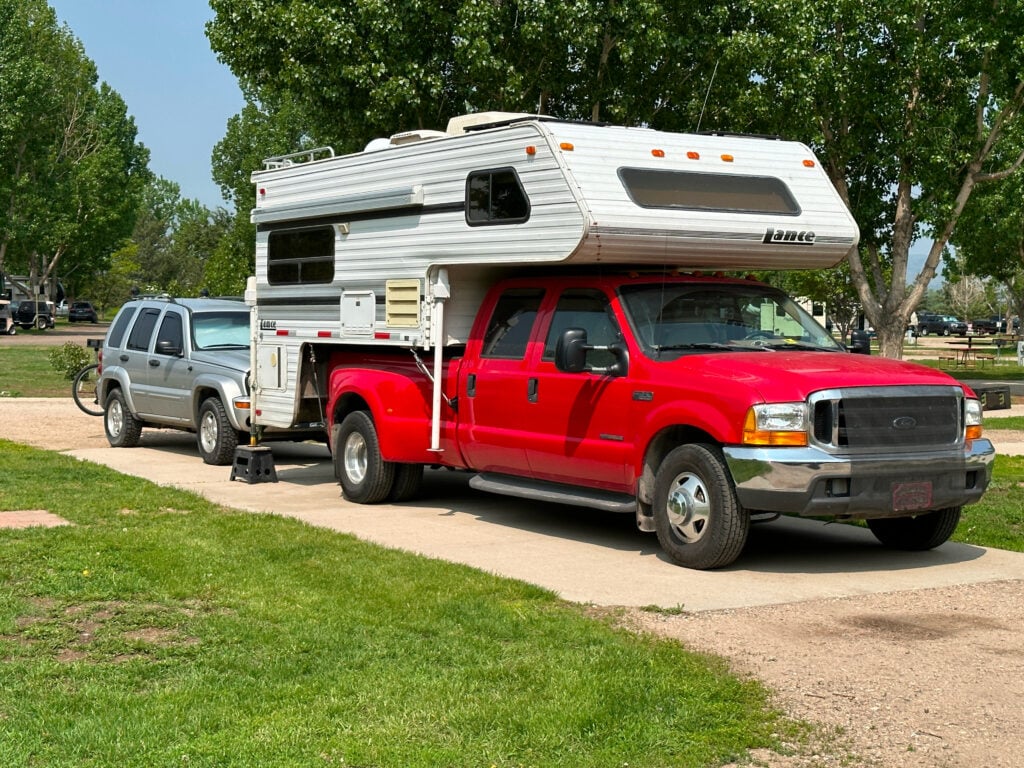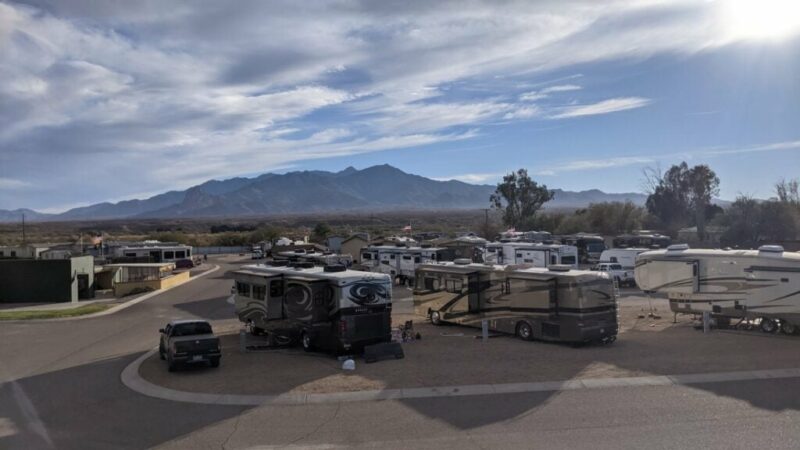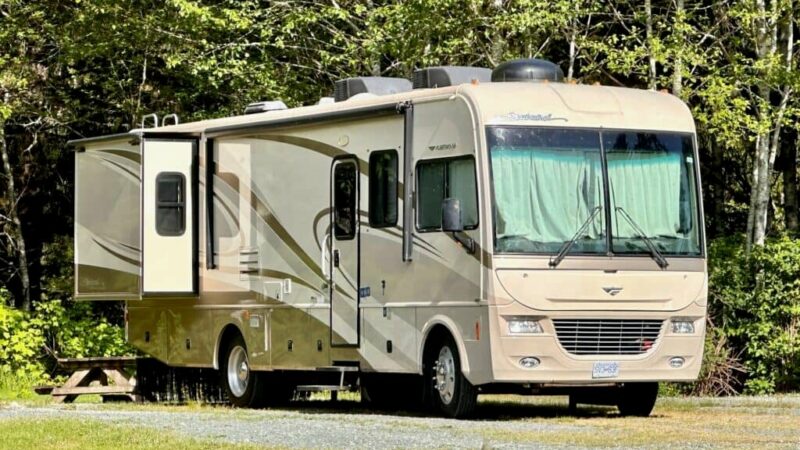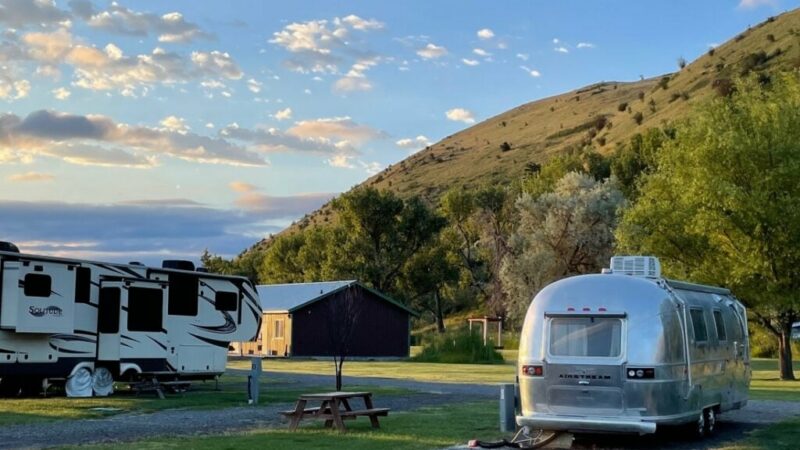RV Insurance Coverage: What Is Legally Required?

What Type Of RV Insurance Coverage Do You Need?
Paying for RV insurance can be a pain in the neck, but you’ll be glad you have it when disaster strikes! In addition to protecting yourself and your vehicle, vehicular insurance is a requirement in every state. RVs can be a bit of a gray area, especially because motorhomes and towable models have their own rules. We’re here to help you navigate this situation though!
At the end of the day, you’ll need at least a basic level of insurance for your vehicle. Sometimes you can extend the existing liability coverage of your tow vehicle or get a separate plan for your RV. Both options have pros and cons. On the other hand, motorhomes will always need their own insurance plans.
Insurance coverage comes in all shapes and sizes. RVs are expensive, so you’ll want to protect your investment. Begin by covering the legal necessities, then branch outward from there. The more insurance you have, the better off you’ll be.
Extended vehicle coverage (Car and towable trailer)
First up, let’s talk about insurance for towable trailers. Lots of RVs fall under this category, including travel trailers, fifth wheels, pop-up campers, and teardrop trailers. Basically, this covers anything that doesn’t have its own engine.
Because these RVs aren’t considered to be official vehicles, they don’t require the same level of coverage as cars and motorhomes. The specific laws and requirements vary by state. But the rule of thumb is that your RV needs the same level of liability coverage that a car has.
In some cases, you can use the insurance plan of the tow vehicle to cover the trailer as well. Your rates may go up a bit, but it’s more convenient to lump it together rather than deal with two separate plans.
However, this means that your trailer won’t be protected from unforeseen circumstances. An extended vehicle coverage plan might cover the big stuff like collisions, but it won’t give you any protection from theft, weather damage, or vandalism.
So even though you might not have to insure your towable trailer, it’s still smart to do it anyway. A little extra protection can go a long way! Besides, you probably spent a lot of money on your trailer when you bought it. Why not pay a little extra to keep it in good shape?
If you want to see a full breakdown of the RV insurance requirements by state, look at this helpful resource from progressive.com. Check out the information for your state and see if you need to upgrade your insurance plan.
Separate liability coverage for self-propelled RVs
In many cases, you can choose what level of protection you want to give to your towable trailers. But if you have a drivable RV, such as a motorhome, then you need more coverage. States are stricter about motorized vehicles, and motorhomes have the potential to cause a lot of damage on the road.
Therefore, everyone who drives a self-propelled RV needs to have liability coverage (at the very least). One common format for liability is the 20/40/10 breakdown. This means that you need to have $20,000 of bodily injury insurance, $40,000 for collision/vehicular damage, and $100,000 for property damage. Not every state requires these specific amounts, but it’s a good baseline to build off of.
Liability coverage is the main type of insurance that you need to operate your RV legally. But it’s also a good idea to get comprehensive coverage to protect you against natural disasters, theft, and other outside forces that could damage your vehicle.
Collision coverage is often necessary too. Liability coverage exists so that anyone you hurt in an accident gets their fair share. But what about the damages you sustain in an accident? Collision coverage is a type of RV insurance that ensures you have enough money to repair or replace your vehicle if it gets damaged.
Again, liability coverage is usually the only legal requirement for RVs. But you can always upgrade your plan for greater protection.
Full coverage for financed or rented RVs
Sometimes you don’t have the choice to opt out of insuring your vehicle. If you don’t own the trailer or motorhome, you have a greater responsibility to protect it.
Many people use loans to finance their RV purchases, while others like to rent vehicles for their trips. In both of these cases, you’ll be required to provide full coverage for the trailer while it’s in your possession. Full coverage means different things to different people, but it usually includes insurance for liability, collision, and comprehensive plans at least.
Sometimes you can choose the plan yourself, but in many cases, the lender will select the coverage/provider that they prefer. After all, they want a guarantee that they’ll get their money back if the vehicle is damaged or destroyed. However, these plans sometimes come with extremely high premiums, so they’re difficult to afford.
If this is the case for you, you should talk to the lender to see if you can negotiate a different arrangement. As long as you get the necessary coverage, they’ll usually be willing to listen. Sometimes it’s simply better to pay for the insurance yourself. Never go behind the lender’s back on this type of deal though! You could land in some legal hot water if you mess with an RV that doesn’t fully belong to you.
Optional types of RV insurance
As long as you have the right plan/coverage to prepare for the possibility of a crash, you don’t technically need more RV insurance. But there are plenty of other types of insurance that can be helpful, especially if you use your RV a lot. The following plans are all optional, but they can be extremely useful!
Uninsured motorist coverage
This type of RV insurance kicks in if you’re in a collision with someone who doesn’t have their own insurance. Rather than paying out of pocket, this coverage ensures that you still get a fair payout if the other party cannot provide it.
Full-time coverage
If you live in your RV full-time, you’ll want an insurance plan that supports this lifestyle. Full-time coverage for an RV provides some of the benefits you might find in home insurance plans. It gives you greater peace of mind and can help you address a variety of issues that might appear during extended use.
Theft replacement/reimbursement
It’s sad to say, but sometimes RVs are robbed and vandalized. You may lose precious possessions in the process. If your personal belongings are lost or destroyed, an insurance plan against theft can help. You may get reimbursed for the missing items. Sometimes theft losses are included in comprehensive coverage plans, but it’s not guaranteed.
Medical payments
This next type of coverage may be included in liability plans, but sometimes the payout isn’t high enough. If you have high medical expenses, a separate type of coverage may be necessary. Medical payments help you get the treatment you need, regardless of whether the collision was your fault or not.
Sometimes this plan can even apply to accidental injuries sustained within the RV. For example, if an elderly family member trips while they’re inside, you might be able to use this coverage to pay for their hospital bills.
Roadside assistance
Roadside assistance is a necessity for most RVers. You never know when you might run out of gas, pop a tire, or break down in the middle of a trip. In these cases, you need a professional to come help you out. Roadside assistance plans ensure that you always have someone you can call during an emergency.
Shop for RV insurance online
You can start with policy shopping from an online provider like RVerInsurance.com. RVer Insurance Exchange offers free quotes for RV insurance, health insurance, even extended warranties.
Related articles:
- RV Warranties vs RV Insurance: What Are They And Do You Need Both?
- What You Should Know About RV Towing Insurance
- RV Insurance: Important Things You Need To Consider
The post RV Insurance Coverage: What Is Legally Required? appeared first on RV LIFE.







